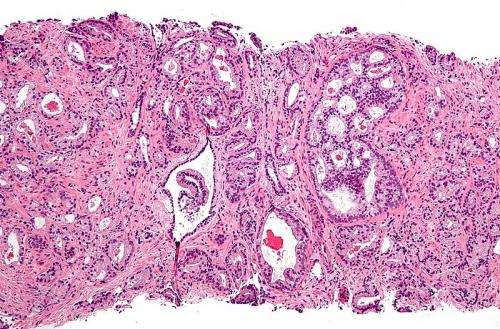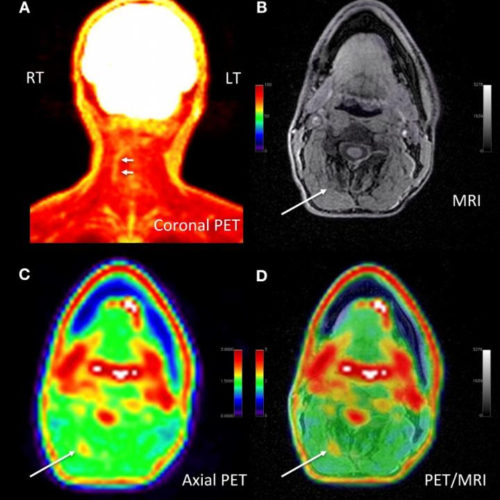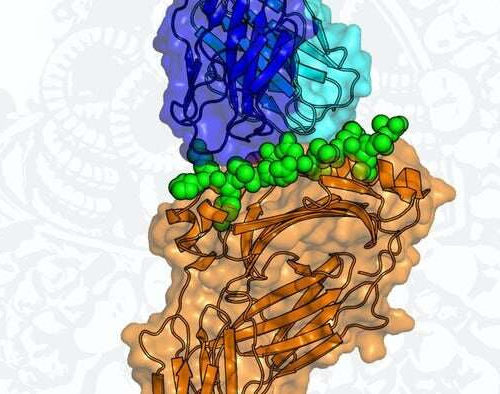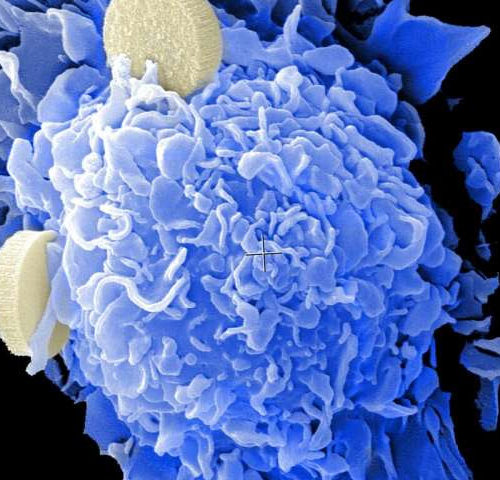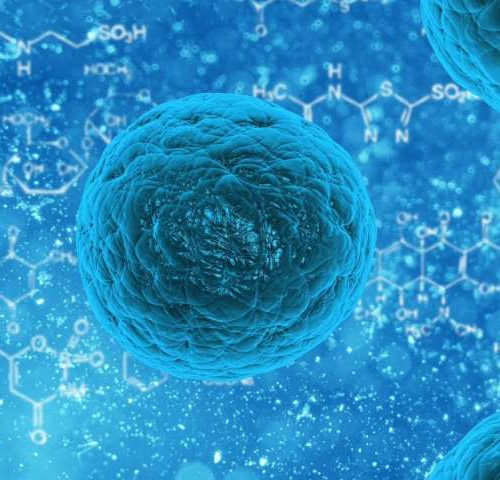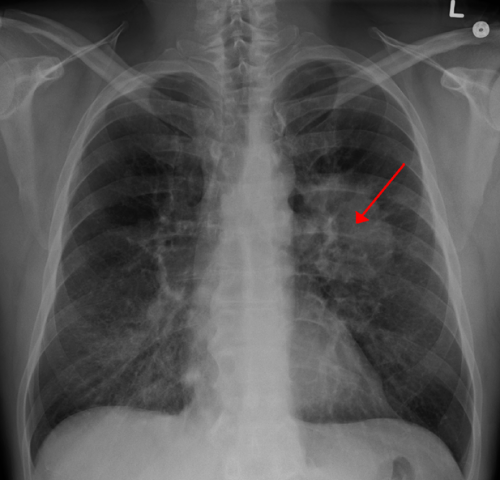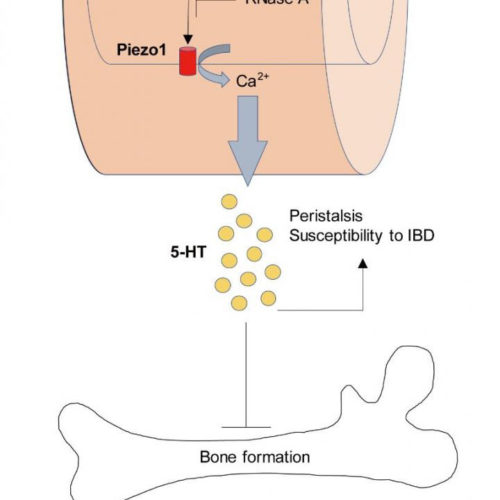Scientists have created hollow, spherical sacks called vesicles by using protein and RNA. These bubble-like entities—which form spontaneously when specific protein and RNA molecules mix in an aqueous buffer solution—hold potential as biological storage compartments. They could serve as an alternative to traditional vesicles that are made from water-insoluble organic compounds called lipids, researchers say....
Tag: <span>molecular</span>
Researchers identify possible drug target for prostate cancer
by Boston University School of Medicine Researchers from Boston University School of Medicine (BUSM) have discovered that the protein BRD4 could be an important new target to prevent castration-resistant prostate cancer metastases. Castration-resistant prostate cancer is a highly aggressive form of prostate cancer that often leads to the development of lethal metastases that kills more...
New PET/MRI approach pinpoints chronic pain location, alters management
SOCIETY OF NUCLEAR MEDICINE AND MOLECULAR IMAGING ADULT MALE WITH DECADES OF RIGHT NECK PAIN, DISCOMFORT AND TIGHTENING FOLLOWING BIRTH INJURY. THE PATIENT HAD FAILED MULTIPLE STANDARD THERAPEUTIC MANEUVERS BEFORE PRESENTING FOR 18F-FDG PET/MR IMAGING. IMAGES SHOWS… view more CREDIT: CIPRIANO, ET AL., STANFORD UNIVERSITY, CA. A new molecular imaging approach utilizing 18F-FDG positron emission...
Discovery of new immune targets inside flu virus offers hope for universal vaccine
by Cardiff University New markers hidden inside the influenza virus have been discovered by scientists at Cardiff University. The researchers from the School of Medicine worked with an international team of experts—including collaborators in Moscow, Russia and Melbourne, Australia—to look at how people’s immune systems responded to the new proteinmarkers. They showed for the first...
Breakthrough image shows how “super-ager” brains resist cognitive decline
By Rich Haridy July 15, 2020 New research is illustrating the differences in toxic protein accumulations in the brains of older subjects suffering cognitive decline compared to older subjects with unexpectedly strong cognitive abilities. An image compiled from PET scans of these so-called “super-agers” has won Image of the Year from the Society of Nuclear...
Study finds fatty acid that kills cancer cells
by Washington State University Researchers have demonstrated that a fatty acid called dihomogamma-linolenic acid, or DGLA, can kill human cancer cells. The study, published in Developmental Cell on July 10, found that DGLA can induce ferroptosis in an animal model and in actual human cancer cells. Ferroptosis is an iron-dependent type of cell death that...
Fat cell hormone boosts potential of stem cell therapy
by Osaka University Mesenchymal stem cells (MSCs) have the potential to differentiate into a range of different cell types, including bone, fat and muscle cells. But it’s their ability to stimulate the repair of damaged tissue that has captured the interest of researchers worldwide, with MSCs demonstrating therapeutic effects in the treatment of conditions such...
Lung cancer in non-smokers likely to respond differently to treatment
by Institute of Cancer Research Lung cancer in non-smokers is a diverse and distinct disease from that in smokers, and is likely to respond differently to targeted treatments, a major new study shows. Scientists studied a population in Taiwan with high rates of lung cancer among non-smokers—and found a range of genetic changes which varied...
Researchers develop peptides for treating gastrointestinal disorders
Reviewed by James Ives, M.Psych. (Editor) Milestone for therapeutic development of peptides against gastrointestinal disorders The fascinating family of trefoil factor peptides brings hope to both research and industry to improve the treatment of chronic disorders such as Crohn’s disease. For the first time, a team led by ERC awardee Markus Muttenthaler from the Faculty...
Gut Piezo1 regulates gut and bone homeostasis via RNA sensing.
NATIONAL INSTITUTES OF NATURAL SCIENCES SCHEMATIC MODEL OF FECAL RNA-MEDIATED SEROTONIN PRODUCTION. view more CREDIT: KENTA MARUYAMA In a new study published in Cell, “RNA sensing by gut Piezo1 is essential for systemic serotonin synthesis”, a research team led by Kenta Maruyama M.D., Ph.D. from National Institute for Physiological Sciences (NIPS) explored the role of...

